YANGON—Even though the 2020 election is rapidly approaching, candidates in Yangon are unable to launch public campaigns due to strict COVID-19 related restrictions from the Ministry of Health and Sports. The Irrawaddy spoke with candidates from four different parties—the National League for Democracy (NLD), Democratic Party of a New Society (DPNS), People’s Party (PP) and Kaman National Development Party (KNDP)—which will compete in constituencies in Yangon Region. All said that their biggest challenge is how to campaign effectively under restrictions that control their ability to meet with voters. The candidates shared their plans for the 2020 election and their priorities if elected to Parliament.
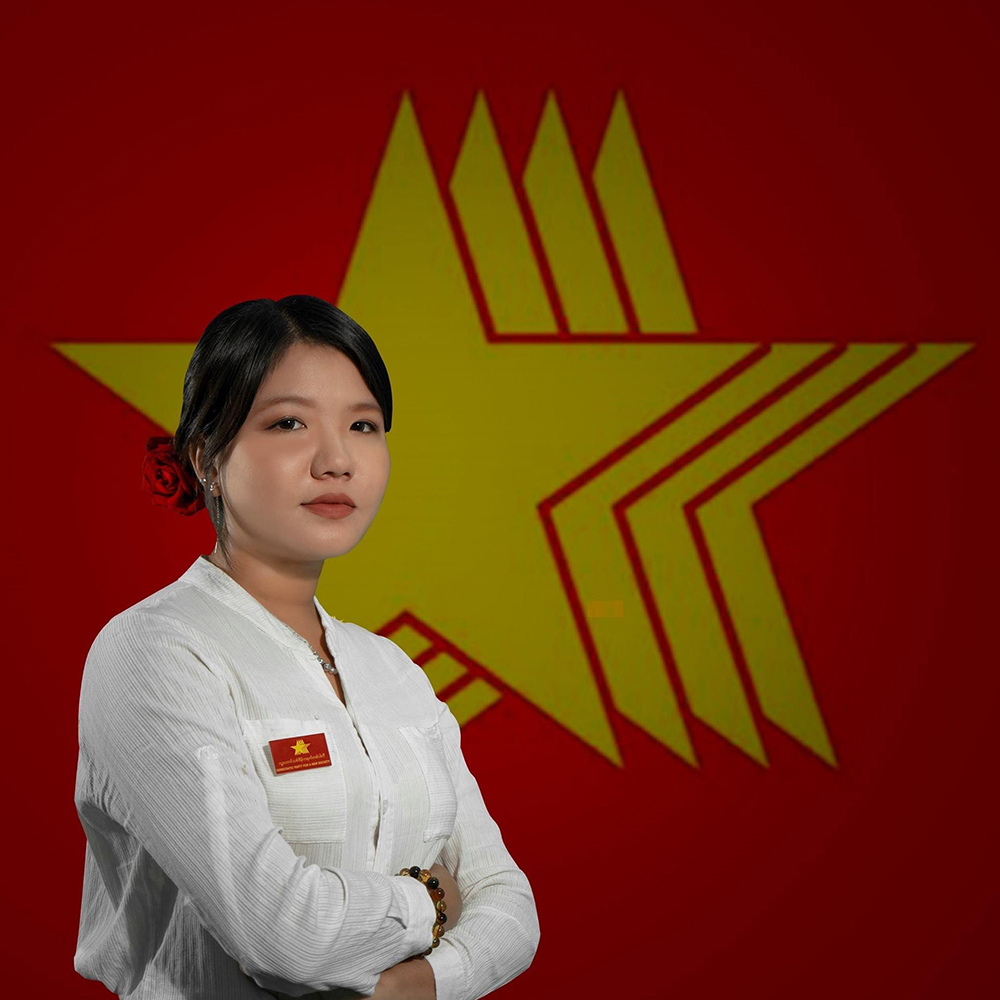
Ei Thinzar Maung is one of the youngest 2020 candidates from the DPNS, a party led by the former student leaders of the 88 uprising, pro-democracy protests in 1988. The 26-year-old woman is running for a seat in the Lower House of Parliament, representing the Pabedan Township constituency. A human rights activist since 2012, she was the first female president of the student union of Yadanabon University. She was among the several students who were arrested and faced violent crackdowns in 2015 for seeking changes to an education bill that limited academic freedom. She has been involved in human rights activities on behalf of minority groups, including the Rohingya, and has demanded an end to armed conflicts in Kachin and Rakhine states.
What are the main things you want to accomplish in Parliament?
My two priorities are to promote and protect human rights and to fight against discrimination. By winning a seat in the Hluttaw [Parliament] I want to be a voice for voiceless the people. When it comes to human rights, my political determination is to work for minority rights. Minorities are always left out in political decision-making. Some think that minorities’ voices should not speak out at this time because it might ruin the reform process. I want to say that as we seek reforms, we must not ignore the voices of the minorities. If we really want to make [political] changes, we must consider the voices of these people. Otherwise, the people of Myanmar will gradually lose hope. And they may even feel that this country no longer belongs to them. My standard values are freedom, equality and justice. As a candidate, I want to be a representative for all the minorities in the country.
What are the top priority reforms needed for the people in your constituency?
When people are being discriminated against for a long time, it becomes normal for them. They no longer think that it is discrimination. I think that we have to keep identifying discrimination and speaking out against it. I believe that it is the main thing that I can to do for the people in my constituency.
Moreover, the Pyithu Hluttaw [Lower House] has to focus on legislation. I think that it is necessary to focus on amending laws relating to the public’s right to access information. There are laws that have violated human rights, such as 505 (B) and the peaceful assembly law. Such laws should not exist anymore. Some laws serve only to protect the powers of the authorities rather than to protect the rights of the people. Human rights activists are being unnecessarily oppressed due to those laws. In the meantime, we need to amend the laws that narrow the framework of democracy as much as possible. If you are a government, you will be subject to criticism. You can’t just listen to the voices from your supporters. You must also listen to those who do not like your policies. If I were in the Parliament, I would surely try to change these laws.
What would you like to see for your country in the future?
I come from [Kachin State], where the civil war is still ongoing. So, I want to see our nation as a peaceful country without conflicts. It is important not only to stop the wars but also to create a community where people are warm and kind to one another.
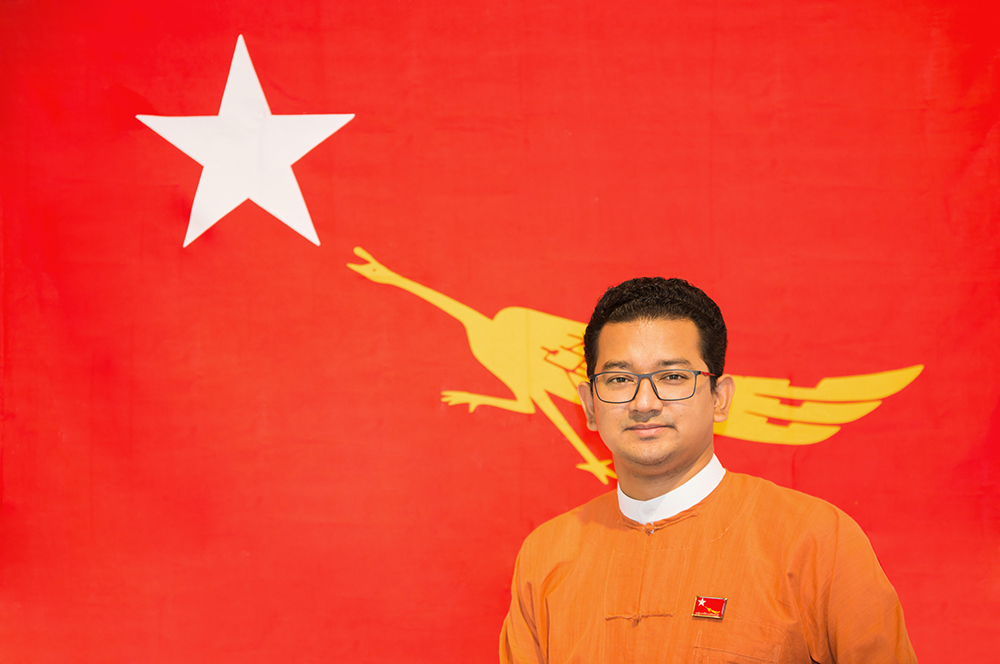
Sithu Maung is the son of die-hard supporters of the NLD. His home was even turned into a township office of the NLD in Yangon when the party formed in 1988. He was one of the student leaders who led the re-founding of the All Burma Federation of Student Unions (ABFSU). In 2007, the young Muslim man was sentenced to more than 11 years in prison for his role in the “Saffron Revolution,” peaceful demonstrations led by the monks against the military government. His parents were sentenced to about four years, accused of helping his protest activities. He was released from prison in 2012. Since then he has been involved in activities with the student union and efforts to amend the 2008 Constitution. He also works as a trainer on the subject of constitutional federalism in ethnic areas across the country. He is running for the Lower House of Parliament in the Pabedan Township constituency for the NLD. Ei Thinzar Maung is among his opponents for that seat.
What are the main things you want to accomplish in Parliament?
When I applied as a candidate, I chose the seat for the Pyithu Hluttaw. Because the power distribution between the central government and the regions is limited by the 2008 military-drafted Constitution, we are attempting to establish a democratic federal union in our country. I believe that I can make more political changes from the Pyithu Hluttaw. I can implement programs based on the NLD’s political policies and goals, and also focus on issues relating to the constitutional rights of citizens. I would be able to amend and abolish laws that are not in line with democracy. Moreover, I could ask questions in the Parliament, representing all ethnic people in my constituency. I also want to carry out legal amendments to protect their rights and interests. As a trainer on the subject of federalism, I hope to be involved in our country’s transition as we form a democratic federal union.
What are the top priority reforms needed for the people in your constituency?
In Pabedan, the rule of law is important. Small crimes, including theft, are occurring. And another problem is traffic congestion. I understand that the traffic problem cannot be solved alone. It must be solved in collaboration with the other townships. At the union level, I believe that I can focus on imposing regulations [relating to it]. People say that I chose Pabedan because I am a Muslim. That is totally wrong. Actually, Pabedan is in the downtown area. We can even say that it is the heart of Yangon. It has multiple cultures, multiple religions and multiple ethnic groups. When the military government cracked down on pro-democracy movements, the people in Pabedan opened their doors to save us. They allowed us to stay inside while military officers were searching for us. We owe them our lives. I would like to repay those debts if I am chosen as a lawmaker.
When it comes to politics, we cannot just work for one religion or one ethnic group. I would never view politics so narrowly. I would never work politically for just one ethnic group. We must strive politically for all the people in this township. I also believe that we need to push for legal reforms such as enacting laws to provide more protection for people who are being oppressed. I would never let anyone in my township suffer discrimination and indignity. I will firmly stand to work for all the people in this country.
What would you like to see for your country in the future?
When we talk about peace, we often refer to the armed conflicts. On the other hand, if there is any ethnic or religious violence, we must say that we are not living in a peaceful society. So we need to resolve the armed conflicts based on the political aspirations of the ethnic people through political means. At the same time, to build a peaceful and harmonious society, we need to be able to ease tensions based on religious hatred, racial discrimination and other forms of discrimination. Only then, I believe, can our country truly become a diverse nation. I want to see such a Myanmar. I just want to see our country become a more secularized society.
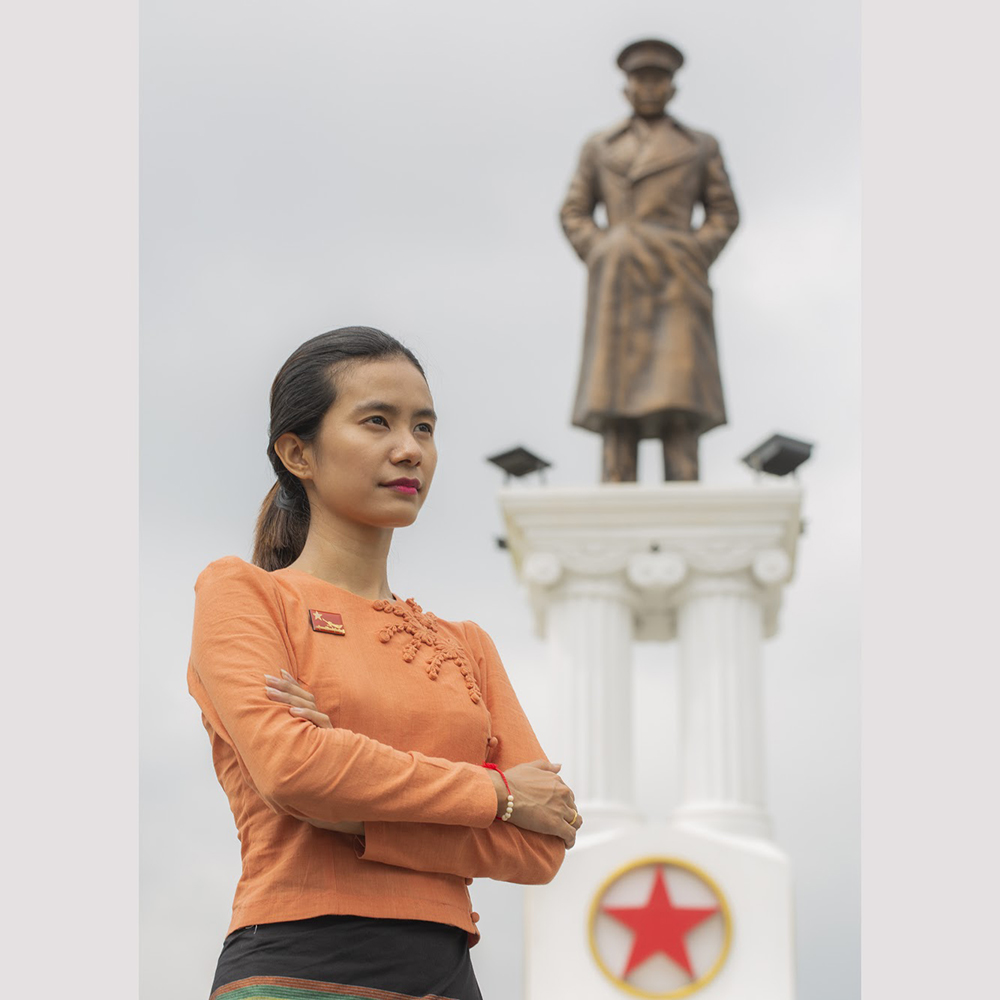
Mya Thida is one of the new faces among the ruling party’s candidates for 2020. She is running for a seat in the Lower House of Parliament for Dagon Myothit (North) Township, in Yangon Region. She became a member of the NLD in 2012 and had previously volunteered in various social and educational organizations. She received a Chevening Scholarship in 2017 and holds a master’s degree in international development from the University of Bristol in the United Kingdom. She works as a senior program associate at the Renaissance Institute (RI), an organization led by high-profile economists and NLD central economic team members in Myanmar. She is involved in research work on sub-national governance and municipal finance at the RI.
What are the main things you want to accomplish in Parliament?
One of my political beliefs is that young people should be involved in politics. As a young woman, I want to focus on areas involving youth and women if I am elected as a lawmaker. My studies focused on peace and development, and also the role of international organizations and civil society. Based on my educational background, I also hope that I would be able to participate in our peace process, which is one of the NLD’s main priorities.
What are the top priority reforms needed for the people in your constituency?
I will work effectively for the needs of the people in my constituency, particularly the need for the rule of law and addressing the lack of job opportunities. As far as I have observed, young people who are weak in their educational backgrounds and employment opportunities are more likely to become involved in drug use. Lack of education and job opportunities have led young people to commit both petty crimes and major crimes. The rule of law affects our daily lives. So, I want to focus on those issues. Moreover, the basic requirements for the people in my constituency include basic health care and infrastructure improvements, including roads.
What would you like to see for your country in the future?
Our party’s main agenda is to achieve long-lasting peace in Myanmar. As a young woman, I am willing to help build a nation that all ethnic groups in this country are dreaming of.
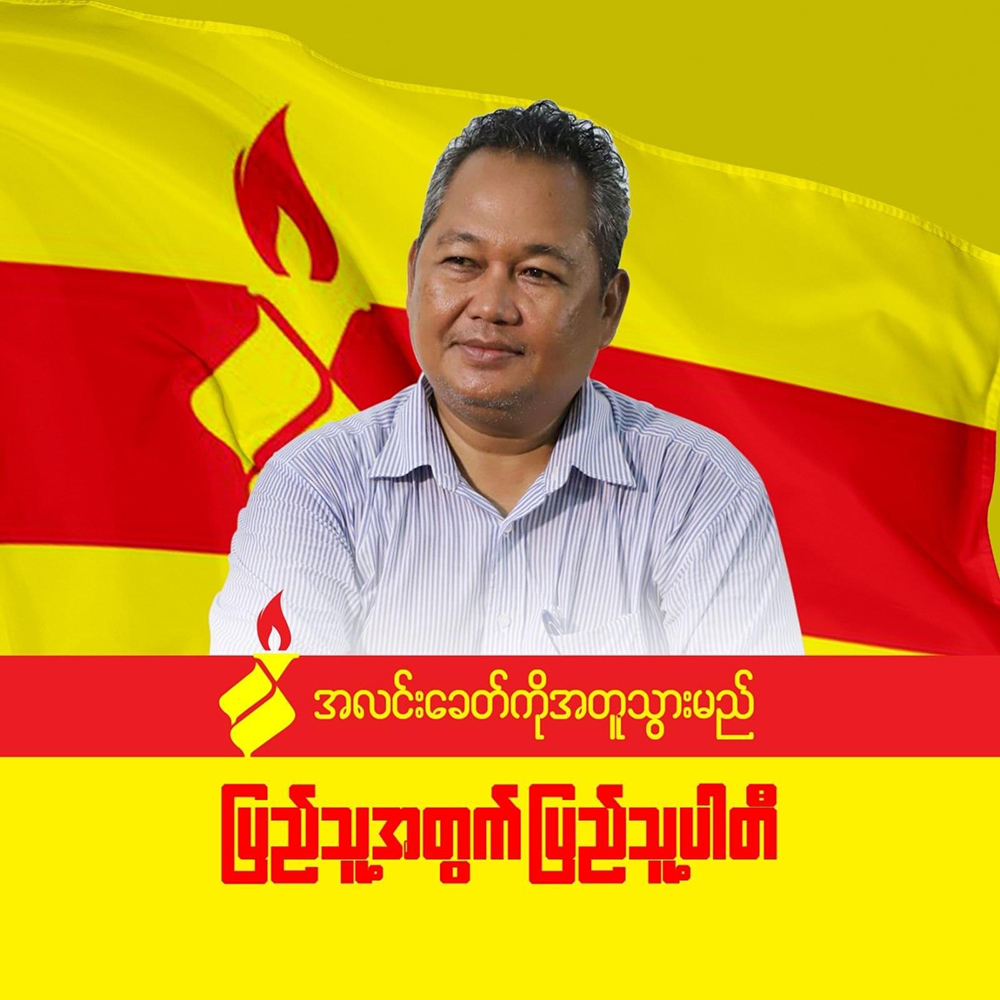
Maung Maung Hlaing was involved in the formation of the ABFSU and democracy movements in 1988. Later he left politics and focused on family business. In 2013, he left business and reentered the political arena. In 2015, he ran for the Lower House of Parliament from Dagon Myothit (North) Township as an independent candidate. However, he did not secure the seat. Later, he became a Central Executive Committee member of the People’s Party (PP), which is comprised of people who participated in the widespread pro-democracy demonstrations in 1988. Now, he is running again for the Lower House of Parliament in Dagon Myothit (North). Mya Thida is among his opponents in the township.
What are the main things you want to accomplish in Parliament?
We have been thinking about what kind of reforms we need in this country since 1988. I have always wondered: Why is this country so poor and what do we need to do to solve that problem? If you ask me what I want to do in Parliament, there are a lot of things to do [for reform] in this country. There are a lot of issues that need to be improved, particularly the economy, education, social security, health and also political reforms. As a Lower House lawmaker, I will reinforce implementation of the party’s policies that prioritize the public’s interest, especially economic, peace, investment and youth policies, and women’s issues.
What are the top priority reforms needed for the people in your constituency?
The most important thing in my constituency is the rule of law. Another issue is the drainage system. People face flooding problems when it rains. We need to discuss that on the regional level to solve that problem. Moreover, according to the party’s policy, the 2008 Constitution needs to be amended, including Article 436. We need to work in Parliament to eliminate unnecessary laws and replace them with good ones. We also need to amend Article 261 of the 2008 Constitution if we want to form a democratic federal union. In our party, we have been carefully studying and discussing possible ways to amend the Constitution.
What would you like to see for your country in the future?
There are lot of things that we need to improve in the country. We want to see our country as a democratic federal union in the future. That’s what all the ethnic groups in Myanmar have been longing for.
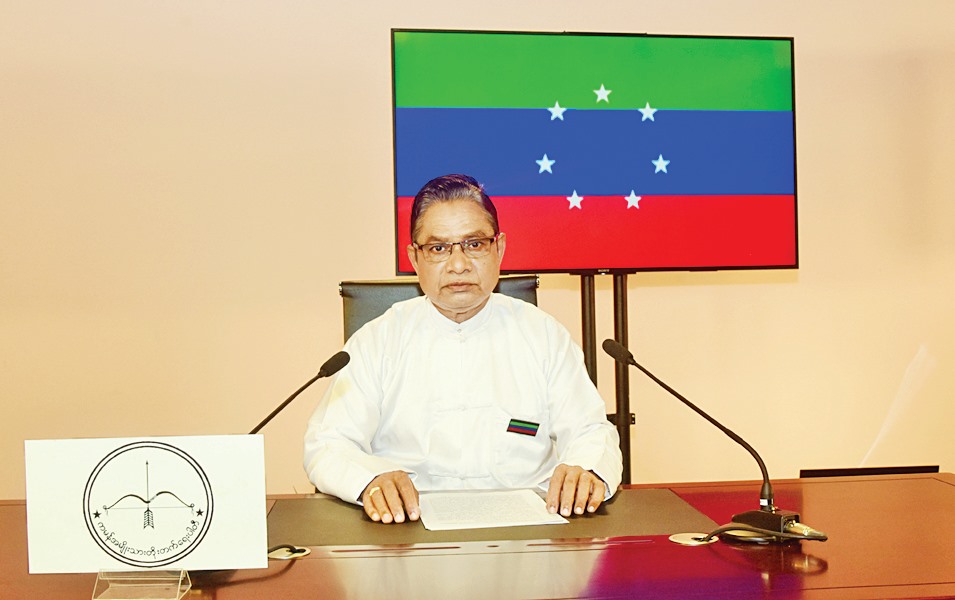
U Hla Thein is running for the Yangon regional parliament seat for Mingalar Taung Nyunt constituency, under the banner of the Kaman National Development Party, which represents one of the ethnic monitories from Rakhine State. He is a vice chair of the party. The Kaman are one of the 135 officially recognized ethnic groups in Myanmar. The group belong to the Islamic faith. Despite the fact that the party is small, it contested both the 2010 and 2015 general elections. However, it did not secure a seat in either election. The party is competing for five seats—three in Yangon Region and two in Rakhine State—this year.
What are the main things you want to accomplish in the regional parliament?
I want to work on the plight of minorities in Myanmar. We have a lot of other minorities in the country, including the Kaman. Minority rights are being abandoned in all government administrations. Ours affairs are being neglected by the government. So, I want to represent our ethnic monitories in the parliament, especially to address our rights when it comes to education and health issues. We are facing many difficulties because administrators have ignored our rights for long. I want to win in this election to address officially these issues in the [Yangon] parliament.
What are the top priority reforms needed for the people in your constituency?
In Mingalar Taung Nyunt, the main problem relating to public health is the stray dogs issue. Moreover, some Muslims are having a hard time getting citizenship cards despite both of their parents being citizens for a long time. These things should not happen. I will focus on that issue and will push the government to solve that problem, especially pointing out what the government needs to do for these people. The most important thing is to obtain full rights for minorities. We believe in equal opportunities for all, regardless of race or ethnicity.
What would you like to see for your country in the future?
I want to see our nation in the future as a country that values humanity. I hope there would be no discrimination among the ethnic groups. Every citizen must have full rights, no matter what their ethnicity or religion. I hope our country becomes a democratic federal state where all have equal opportunities and rights.
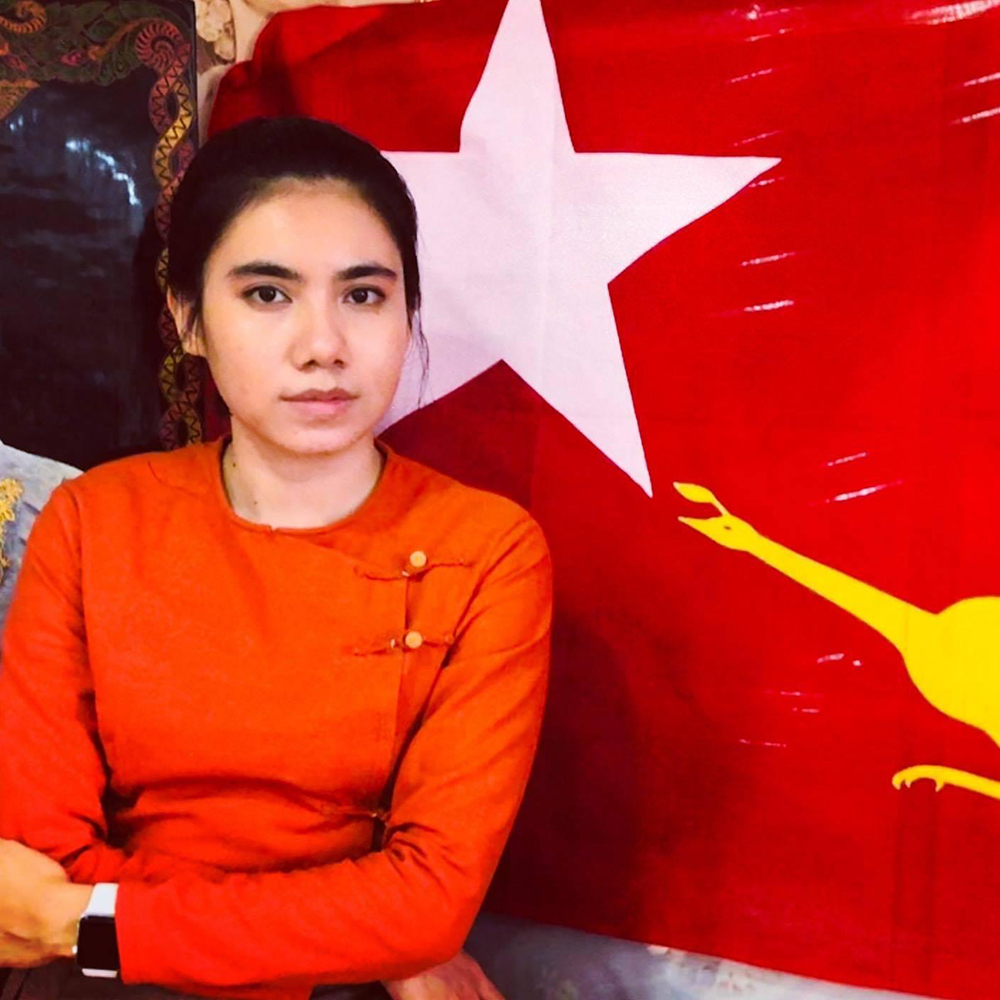
Thet Htar Suu Kyi is one of the young candidates from the NLD seeking a Yangon regional parliament seat for the Mingalar Taung Nyunt constituency. She is one of U Hla Thein’s opponents competing in the township. The 29-year-old woman grew up in her constituency and served as a volunteer at the NLD head office in 2008 when Myanmar State Counselor Daw Aung San Suu Kyi was under house arrest. In 2012, she became involved in activities of the NLD Central Executive Committee in a supporting role. She became an assistant to the NLD Central Economic Committee in 2018.
Later, she was invited to Tokyo University as a guest student under the graduate school of public policy program to study economics, focusing on financial markets and development in emerging Asia. She was not available for an interview because the party has imposed a ban on its candidates talking to the media for the time being.
You may also like these stories:
Myanmar Launches Election App to Keep Voters Informed
Leader of Myanmar’s Top Shan Party Resigns in Shock Announcement
Many Myanmar Migrants in Thailand To Be Denied Vote as Extra Polling Stations Ruled Out

















